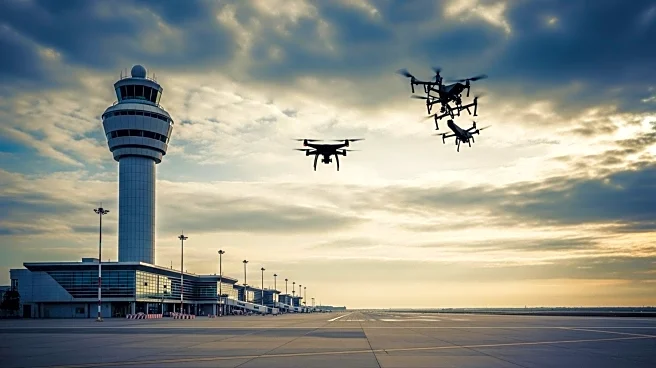What's Happening?
Munich Airport experienced temporary closures due to unconfirmed drone sightings, affecting numerous flights and passengers. On October 3, German air traffic control restricted operations as a precaution, leading to the grounding of 17 flights and the diversion of 15 others to nearby cities. The airport, a major hub for Lufthansa, resumed operations the following morning. This incident is part of a broader pattern of drone-related disruptions at European airports, raising concerns about aviation safety and security.
Why It's Important?
The repeated drone sightings at Munich Airport highlight significant challenges in aviation security, as drones pose potential risks to flight safety. This incident underscores the need for enhanced detection and interception systems to prevent unauthorized drone activity near airports. The disruptions also have economic implications, affecting airlines, passengers, and airport operations. As drone technology becomes more accessible, regulatory bodies may need to implement stricter controls and develop advanced counter-drone measures to ensure the safety and efficiency of air travel.
What's Next?
In response to these incidents, European authorities may accelerate the development of comprehensive anti-drone strategies, including the proposed 'drone wall' initiative. This would involve a network of detection and interception systems to protect airspace. Additionally, discussions at upcoming European summits may focus on collaborative efforts to enhance aviation security and address the growing threat of unauthorized drone activity. Stakeholders, including airlines and regulatory agencies, will likely advocate for increased investment in technology and infrastructure to mitigate these risks.











